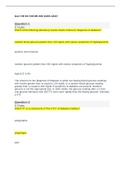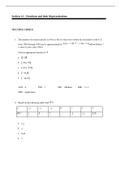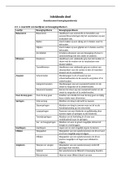College aantekeningen
Full summary (lectures and relevant course materials) for Global European Governance
- Instelling
- Erasmus Universiteit Rotterdam (EUR)
This is a summary that can help you prepare for the Global European Governance exam from the MISOC bachelor programme. It includes all the lecture notes, as well as literature that was discussed during the course. Grade: 9,3
[Meer zien]













